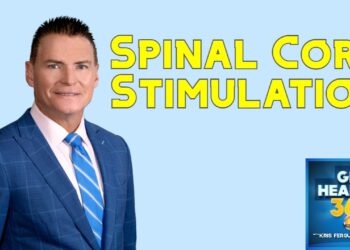Is your prescription sleep medication making you weak?

Insomnia is a chronic problem, but are medications the answer? Could sleep medications have side effects unknown to users? When chronic users of sleep aids stopped using their sleep medications like Ambien (Zolpidem), Temazepam, or Zopiclone their strength increased after just three weeks.
Caution must be exercised when starting or stopping medications and we strongly encourage a conversation with your prescribing health care professionals.
The Research
BMC Geriatr. 2014 Nov 21;14:121. doi: 10.1186/1471-2318-14-121.
Handgrip strength and balance in older adults following withdrawal from long-term use of temazepam, zopiclone or zolpidem as hypnotics.
Nurminen J1, Puustinen J, Lähteenmäki R, Vahlberg T, Lyles A, Partinen M, Räihä I, Neuvonen PJ, Kivelä SL.
Abstract
BACKGROUND:
Benzodiazepines and related drugs affect physical functioning negatively and increase fall and fracture risk. As impaired muscle strength and balance are risk factors for falls, we examined the effects of hypnotic withdrawal on handgrip strength and balance in older adult outpatients during and after long-term use of temazepam, zopiclone and zolpidem (here collectively referred to as “benzodiazepines”).
METHODS:
Eighty-nine chronic users (59 women, 30 men) of temazepam, zopiclone or zolpidem aged ≥55 years participated in a benzodiazepine withdrawal study. Individual physician-directed withdrawal was performed gradually over a one-month period and participants were followed up to six months. Handgrip strength was assessed using a handheld dynamometer, and balance using the Short Berg’s Balance Scale during the period of benzodiazepine use (baseline), and at 1, 2, 3 weeks, and 1, 2 and 6 months after initiating withdrawal. Withdrawal outcome and persistence were determined by plasma benzodiazepine-determinations at baseline and at four weeks (“short-term withdrawers”, n = 69; “short-term non-withdrawers”, n = 20), and by interviews at six months (“long-term withdrawers”, n = 34; “long-term non-withdrawers”, n = 55). Also most of the non-withdrawers markedly reduced their benzodiazepine use.
RESULTS:
Within three weeks after initiating withdrawal, handgrip strength improved significantly (P ≤ 0.005) compared to baseline values. Among women, long-term withdrawers improved their handgrip strength both when compared to their baseline values (P = 0.001) or to non-withdrawers (P =0.004). In men, improvement of handgrip strength from baseline was not significantly better in withdrawers than in non-withdrawers. However, men did improve their handgrip strength values compared to baseline (P = 0.002). Compared to balance test results at baseline, withdrawers improved starting from the first week after withdrawal initiation. There was, however, only a borderline difference (P = 0.054) in balance improvement between the long-term withdrawers and long-term non-withdrawers. Of note, the non-withdrawers tended to improve their handgrip strength and balance compared to baseline values, in parallel with their reduced benzodiazepine use.
CONCLUSIONS:
Withdrawal from long-term use of benzodiazepines can rapidly improve muscle strength and balance. Our results encourage discontinuing benzodiazepine hypnotics, particularly in older women who are at a high risk of falling and sustaining fractures.











